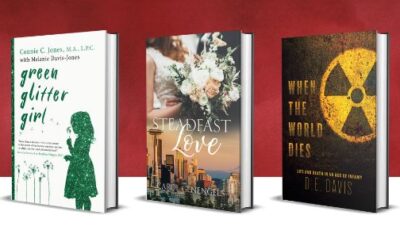 As an author, you’ve probably been told time and time again that great authors read great books. You can’t write if you don’t read. And as an author, you probably always have a book by your bed, one on the kitchen table and another in the living room. Books lined up on shelves, books stacked on the floor, and books intermingled with various pages of your latest manuscript. Image from Auntie SparkNotes
As an author, you’ve probably been told time and time again that great authors read great books. You can’t write if you don’t read. And as an author, you probably always have a book by your bed, one on the kitchen table and another in the living room. Books lined up on shelves, books stacked on the floor, and books intermingled with various pages of your latest manuscript. Image from Auntie SparkNotes
You read for research. You read for inspiration. You read for pleasure.
So what if an acclaimed novelist told you, “Don’t read that book”?
About a month ago in a column for The Tyee and in an interview on NPR’s Talk of The Nation, that’s exactly what Crawford Kilian told aspiring authors.
In his columns, “The 10 Most Harmful Novels for Aspiring Writers,” Kilian lists 10 books that he says young writers should never read.
So what are these dangerous books that could kill your career before it begins?
- Atlas Shrugged by Ayn Rand
- The Catcher in the Rye by J.D. Salinger
- For Whom the Bell Tolls by Ernest Hemingway
- The Lord of the Rings by J.R.R. Tolkien
- The Big Sleep by Raymond Chandler
- Love Story by Erich Segal
- USA by John Dos Passos
- On the Road by Jack Kerouac
- Blood Meridian by Cormac McCarthy
- Lord of the Flies by William Golding
Why does Kilian caution against reading these great literary works? “Their readable styles look so easy that they might seduce a young writer into imitating them.” Kilian maintains that some of them just cannot be imitated.
Authors must look for their own voice and write in their own style, adding to the ongoing conversation that is the literary world. You don’t have to, nor should you, deny the influences of the books you’ve read. But never, never imitate. Instead, you must converse.
“What you need to do is bear in mind that you are entering a conversation with everybody you have ever read when you start writing. And you don’t want to simply say ‘Ditto, Ditto, Ditto,’ to the authors you are conversing with,” Kilian says. “What you want to do is say, ‘That’s a very interesting point you made. Now let me take it a little further and show you what could also be done in this regard.'”
So tell us, what authors have been dangerous to your writing? How do you add to the conversation instead of imitating?
